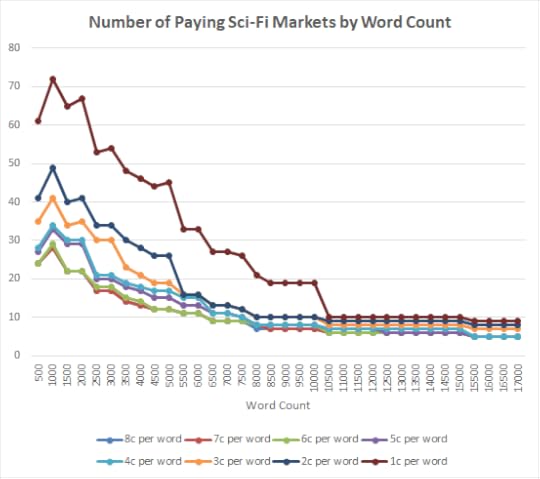Robert Bagnall's Blog, page 10
October 25, 2021
There can be only one - except for sequels and spin-offs, of course
Something of a family tradition now, Saturday night is popcorn movie night with each of us taking turns to choose.
Recently my choices have been relative clunkers, with Primer too gnomic for the beer-and-pizza vibe, and the well-reviewed Vast of Night turning out to be dreadful - incomprehensible verbiage, insufficient story that stalls on the start line and doesn't even inch forward for twenty-odd minutes, and nobody minding that the switchboard girl saw her duties as optional, as opposed to the traditional radio operator going down with the ship - unless you're on the SS Californian, of course. Oh, and a long distance call in response to an item on a local radio station, which nobody even comments on. That's now three and a half hours of my life you own me, Kermode - for that and White Lightnin'.
So, to remind myself what a crowd-pleaser looks like, I re-watched Highlander.
Highlander is a film I don't think I've seen for thirty years plus, and then I only saw it once, twice at a push. There were vast amounts I’d forgotten, from Celia Imrie as the acidic girlfriend to the fact that most of it takes place in modern-day New York and the Highlands are but secondary backstory. Actually, I probably would have dredged that last bit up had I thought about it. But not Celia Imrie.
But what stuck in my mind from my teenage viewing, as much as the accents, is the Highlander rulebook. Here is a race of immortals born of mortals—or, possibly, individuals who were born mortal who somehow became immortal, if that constitutes a material difference—who are destined to come together at the Gathering to fight until there is only one left.
Why?
The lack of explanation left me puzzled then, and even more puzzled now. Says who? Who's making this stuff up? Why does nobody ask why? Why doesn’t Connor McCloud just laugh. Even the soldiers roped in to carry out the so-called Captain Kopenick's bank robbery or the volunteers Stanley Milgram asked to turn the voltage up can claim to have been mesmerised by the power of a white coat or uniform. But this just falls into the category of if someone asked you to jump off a cliff, would you do it?
If the other immortals had managed to take out the Kurgan early doors - and remember, the only excuse for Ramirez giving somebody he’ll have to fight and kill if he is to be ‘the One’ a heads-up is that it’s to his potential advantage, that immortals have some notion of alliance - would they have circled each other with their claymores and broadswords until somebody wondered why:
“Because there can be only One!”
“Says who?”
“Yeah. Says who? We’ve never had an issue with each other up to now.”
“Why don’t we get a camper van, you know, travel around and solve mysteries.”
“I thought maybe a deli serving coffee and panini. Or a little restaurant. Ethnic.”
There are plenty of shit rulebooks in storytelling. It’s just that most attempt some kind of disguise. But not Highlander. It just blurts it out, in the Scottish tones of Sean Connery’s Egyptian immortal. It’s the fore-knowledge that gets me. Immortals fight to the last man standing, not because only one can claim sole inheritance or kingship, or the others are a mortal threat, or reducing their number to one somehow enables some greater good, but because it's what they do. Ice cream melts, seagulls shit on my newly cleaned car, and immortals fight to the last. It's just how the world is. Roll with it.
Maybe there is some priest class with a convincing motivating backstory (I haven’t seen any of the sequels, prequels or spin-offs; I’m dealing with the original alone) and maybe Connor McLeod is somehow late to the party and just getting what’s necessary. But if McLeod is late to the party, who says more immortals can't be born or found? Maybe you're the One for a bit, but there’s a new immortal just born in Outer Mongolia. How does no longer being the One feel? What difference does it make? I’m guessing none whatsoever.
There’s something unusual, possibly unique, story-wise, going on in Highlander and I wonder how many people have noticed. I looked it up on TVTropes - one of my favourite websites, by the way - and there isn't a sniff of recognition. They can't have not noticed? Can they? My guess is it's almost too large to credit.
It’s the ultimate what’s my motivation? The pay-check? It’s in the script? Did the writers simply spend a morning scratching their arses as they tried and failed to finagle a convincing explanation as to why the world was this way, only to declare what’s it matter? let’s go to lunch?
Which all leaves me wondering, is Highlander the ultimate bad writing metaphor? What motivates the characters? Answer: absolutely nothing; they’re just following a script. They say things and do things because that’s what the little black squiggles on the white page tell them to do. And the writers have decided they must come together and fight to the death for no better of more meaningful a reason than it’s cool.
#
Click on the images or search for these on Amazon. You're here, so surely you know how to do that?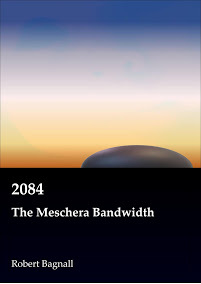
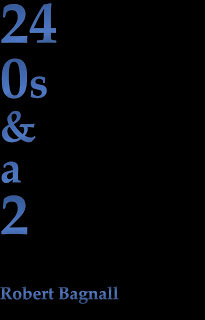
2084 - The Meschera Bandwidth
2084. The world remains at war.
In the Eurasian desert, twenty-year old Adnan emerges from a coma with memories of a strictly ordered city of steel and glass, and a woman he loved.
The city is the Dome, and the woman... is Adnan's secret to keep.
Adnan learns what the Dome is, and what his role really was within it. He learns why everybody fears the Sickness more than the troopers. And he learns why he is the only one who can stop the war.
Persuaded to re-enter the Dome to implant a virus that will bring the war machine to its knees, the resistance think that Adnan is returning to free the many - but really he wants to free the one.
24 0s & a 2
Twenty-four slipstream stories. Frequently absurd, often minimifidian, occasionally heroic.
October 2, 2021
Never finished finishing school
Not doing the last button up on a waistcoat. Never drinking when it's you being toasted. Not acting like an American tourist. Etiquette is difficult, isn't it?
I've blogged previously about the etiquette of simultaneous submissions. Re-reading the 45-year old me, I clearly still had some sense of honour left as I meant what I said about observing publishers' rules. Standards have slipped - or my approach has become more pragmatic, depending on your point of view - since then. Too many submissions either not responded to or getting stuck for too long. Too many publishers offering next to nothing but still wanting exclusivity without commitment. I've become more militant in my view that 'no sim subs' is an unreasonable rule. Christ, even the New Yorker allows sim subs.
So, I now divide the world into those whose 'no sim subs' rule I observe - pro and semi-pro markets; those who respond in a reasonable timescale (say, a month); those who I know are business-like - and the rest. And with the rest, I'm prepared for the embarrassment of having to withdraw (my submission) before you finish (my submission), leaving you confused as to how there was ever another suitor. I've pretty much adopted that strategy since writing that earlier blog posting, which had the effect of crystallising my thinking. And you know what, I've never been left embarrassed.
But I have encountered a variation on the problem: how quickly to withdraw a story from markets which allow sim subs when that story has been accepted elsewhere.
My story Arlecchino is forthcoming in 'The Dead Inside' from Dark Dispatch. Obviously delighted that they've taken this little clown-related nugget - go buy it when it's out. But when the email arrived about a month ago, the story was still with two other publishers, including one that would pay more. I've had too many acceptances turn out to have all the substance of a mirage, including two with the same publisher this year. An acceptance isn't the same as seeing it in print, or getting paid. Reading submissions and sending out acceptance emails is a lot easier than getting a publication together, and too often events get in the way or the process gets too difficult or costly for amateur outfits. Counting chickens, and all that.
Of course, I withdrew the story the same morning from the other venues. But unthinkingly, the compliant actions of my forelock-tugging side. As soon as I pressed send I wondered whether I should have waited for the contract, even waited for payment or a point of no return. (I've even been farcically over-eager previously: I misread an email from newmthys.com telling me that a story had been accepted for further consideration and withdrew it from other markets - it's still being chewed over, and I'll feel a fool if it comes back to me).
Perhaps next time I'm faced with the same situation I'll find that writing this post has, again, crystallised my thinking... and I'll adopt a less naïve strategy.
#
Click on the images or search for these on Amazon. You're here, so surely you know how to do that?

2084 - The Meschera Bandwidth
2084. The world remains at war.
In the Eurasian desert, twenty-year old Adnan emerges from a coma with memories of a strictly ordered city of steel and glass, and a woman he loved.
The city is the Dome, and the woman... is Adnan's secret to keep.
Adnan learns what the Dome is, and what his role really was within it. He learns why everybody fears the Sickness more than the troopers. And he learns why he is the only one who can stop the war.
Persuaded to re-enter the Dome to implant a virus that will bring the war machine to its knees, the resistance think that Adnan is returning to free the many - but really he wants to free the one.
24 0s & a 2
Twenty-four slipstream stories. Frequently absurd, often minimifidian, occasionally heroic.
September 24, 2021
Silver linings
Well, here's my silver medal and I have no problem with it all, because my story 'The $100 Fortune' is tucked somewhere within. Click on an image to pre-order.


#
Click on the images or search for these on Amazon. You're here, so surely you know how to do that?

2084 - The Meschera Bandwidth
2084. The world remains at war.
In the Eurasian desert, twenty-year old Adnan emerges from a coma with memories of a strictly ordered city of steel and glass, and a woman he loved.
The city is the Dome, and the woman... is Adnan's secret to keep.
Adnan learns what the Dome is, and what his role really was within it. He learns why everybody fears the Sickness more than the troopers. And he learns why he is the only one who can stop the war.
Persuaded to re-enter the Dome to implant a virus that will bring the war machine to its knees, the resistance think that Adnan is returning to free the many - but really he wants to free the one.
24 0s & a 2
Twenty-four slipstream stories. Frequently absurd, often minimifidian, occasionally heroic.
September 10, 2021
A suggestion for your reading list...
...there's a little slice of me in here.
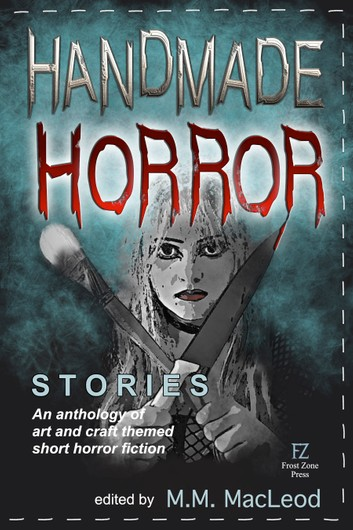
#
Click on the images or search for these on Amazon. You're here, so surely you know how to do that?

2084 - The Meschera Bandwidth
2084. The world remains at war.
In the Eurasian desert, twenty-year old Adnan emerges from a coma with memories of a strictly ordered city of steel and glass, and a woman he loved.
The city is the Dome, and the woman... is Adnan's secret to keep.
Adnan learns what the Dome is, and what his role really was within it. He learns why everybody fears the Sickness more than the troopers. And he learns why he is the only one who can stop the war.
Persuaded to re-enter the Dome to implant a virus that will bring the war machine to its knees, the resistance think that Adnan is returning to free the many - but really he wants to free the one.
24 0s & a 2
Twenty-four slipstream stories. Frequently absurd, often minimifidian, occasionally heroic.
August 11, 2021
Lean in
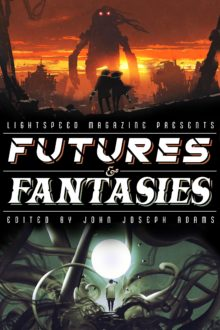
This is partly a blog posting, partly a book review, partly an attempt to make sense of something that has been bugging me for some time.
I've borrowed the title Lean in from the ever-brilliant podcast Rule of Three, a phrase Joel Morris and Jason Hazeley (who I may have sat at the same table with once or twice at Week Ending open writers' meetings) as a phrase they often employ to sum up comedy that makes you want to listen. Good comedy, good writing, makes you lean in. And my difficulty with Lightspeed Presents Futures & Fantasies is that it only intermittently makes me want to lean in.
My starting point is, of course, that the problem lies with me. John Joseph Adams and Lightspeed have won just about every accolade and award they possibly can, and most of what's here has also appeared in whichever annual 'best of' applies. It's a publication I've not come close to getting into, although this made them encourage other submissions. This is the creamiest cream, science fiction-wise, that money can buy.
Or, in this case, money can't buy, because it's a freebie. Which makes being churlish about it feel even more misanthropic than it already does. Because I can't pussyfoot around the fact that it's taken me fourteen months to wade through and, I suspect, stands for many of the things that I really, really don't like about much modern science fiction.
In an attempt to put some flesh on the bones of what is at best a gut feeling, I skimmed back through the tome. It starts well. I think I've read Adam-Troy Castro's 'The Thing About Shapes to Come' before. There's a straightforwardness to the telling that doesn't get in the way of the surreality. It's a straightforwardness that is less in evidence in Caroline Yoachim's tale: "The conversation made sense in the way dreams often do." Hmm, the story too - possibly the leap of imagination here is so great that the words fail to map what's in Yoachim's mind into mine. Or maybe I prefer my sci-fi grounded, which Jeremiah Tolbert's story was.
My recollection of Brooke Bolander's story is frantic style with substance hard to get hold of - who, exactly is doing what to whom, and why? It's all detail and little context. Like I said, the writing needs to map what's in the writers head to mine, and the more crazed the scenario the less I need my writing gnomic.
I seemed to remember quite liking Charlie Jane Anders' tale without quite remembering anything specific about it. Hao Jingfang's... I'm sorry, but this is where the chin-stroking takes over and story... well, story doesn't even come for the ride. Seanan McGuire's and Sarah Grey's stories are, however, stories, which, to me, means a somebody wanting to do something but having hurdles in their way, and if you have that foundation in place it can carry the weight of your fantasy and phrases like "the krosuta-whitened stare of the Henza abbess". Otherwise... well, you're choosing soft furnishings before you even have the walls built.
Ashok K Banker's is also a story, I think, but it's long and gives away the ending at the beginning which makes for a dull trudge to get from one end to the other.
If Hao Jingfang's story illustrated one of my gripes - erudite and literate world-building for world-building's sake without it being the setting for a particular tale, like enjoying the thrill of the open road by studying the maintenance manual; Jaymee Goh's sort of makes it into that category by writing beautifully about not much, rather than nothing at all.
Now, Jake Kerr's story is a story, but was the only one that made me angry, not just for being implausible - I'm not convinced that spaceflight is possible without the knowledge that the tale denied - but, more importantly, for having a character called Mars, so it was only halfway through that I realised that it wasn't a planetary base that was also in communication with the capsule. I think it was meant to read like a clever twist on The Martian, but was just annoying.
I'm going to contradict what I said about lack of narrative, because Carmen Maria Machado's story is, like Jingfang's, a bit of clever word-smithery, but at least it has wit and charm, and was also succinct.
Hugh Howey's piece left little impression on me, so I'm glad I read the Wool trilogy before this, otherwise I may not have pursued it. Cadwell Turnbull's, however, did stick with me, possibly my favourite, being focussed, with a clear single element that differentiates it from normality, and isn't written by somebody in love with language first and ideas second. Sofia Samatar's has similar qualities.
Ken Liu may be a big name, but the conceit here is quite lame and, with Yoon Ha Lee, we're back in "light the colour of fossils burns from the ships, and at certain hours, the sun casts shadows that mutter the names of vanquished cities" territory. Does somebody have the keys to the pretentious phrases generator? Please throw them in the shrubbery. I was recently pulled up by an editor for describing a sound as being "like being inside the mouth of a volcano". Have I ever been inside the mouth of a volcano, he asked. No, but the leap of my imagination can get me there. But light the colour of fossils? shadows that mutter? No, me neither.
Theodora Goss' piece, I must have read very, very recently - just days ago - but can recall virtually nothing about other than it being more conceit than story, ditto Violet Allen's, which is pretty much all about the inability to tell a story.
Which leads me, like an Agatha Christie character gathering everybody in the drawing room, to draw my conclusion. And my accusation is: insufficient story.
It's that simple.
You can do all the world-building and sentence polishing you like, you can think up all kinds of different worlds and maybe come up with wonderful lexical tricks, which I may or may not call out as emperor's new clothes, that describe the additional colour they have in their palate compared to ours. Describe cities in the sky all you like, but if you don't tell me about the kid who lives there who wants to weave a ladder long enough to reach the ground, and all the reasons why they can't and what they do to make it so, it's just word sludge passing by my eyes. I'm no longer reading, I'm staring at words in order.
And a little less po-faced helps too, guys. Not sure how much of this made me crack a smile - Machado's, I think, and Cadwell Turnbull's had a lightness of touch - but there's a real sense of writing for the author's benefit alone, to some template of what 'literature' looks like, as if writing and reading are endurance sports, with an obligatory essay to follow.
But, if this is what good science fiction is – did I mention the pages of award and accolades? - then the problem is still me, and I doubt I'll make it from the foothills of semi-pro publishers up to the high snow-covered peaks. But do I really want to be there? The air's thin, you risk losing your fingers and have to carry your shit back in a plastic bag. I just need to learn to be happy where I am.
#
Click on the images or search for these on Amazon. You're here, so surely you know how to do that?

2084 - The Meschera Bandwidth
2084. The world remains at war.
In the Eurasian desert, twenty-year old Adnan emerges from a coma with memories of a strictly ordered city of steel and glass, and a woman he loved.
The city is the Dome, and the woman... is Adnan's secret to keep.
Adnan learns what the Dome is, and what his role really was within it. He learns why everybody fears the Sickness more than the troopers. And he learns why he is the only one who can stop the war.
Persuaded to re-enter the Dome to implant a virus that will bring the war machine to its knees, the resistance think that Adnan is returning to free the many - but really he wants to free the one.
24 0s & a 2
Twenty-four slipstream stories. Frequently absurd, often minimifidian, occasionally heroic.
August 2, 2021
Not (a) suspect, but hunt it down anyway...
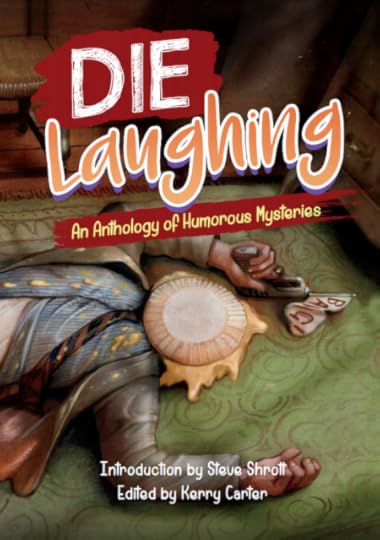
It's got a little bit of me in it...
#
Click on the images or search for these on Amazon. You're here, so surely you know how to do that?

2084 - The Meschera Bandwidth
2084. The world remains at war.
In the Eurasian desert, twenty-year old Adnan emerges from a coma with memories of a strictly ordered city of steel and glass, and a woman he loved.
The city is the Dome, and the woman... is Adnan's secret to keep.
Adnan learns what the Dome is, and what his role really was within it. He learns why everybody fears the Sickness more than the troopers. And he learns why he is the only one who can stop the war.
Persuaded to re-enter the Dome to implant a virus that will bring the war machine to its knees, the resistance think that Adnan is returning to free the many - but really he wants to free the one.
24 0s & a 2
Twenty-four slipstream stories. Frequently absurd, often minimifidian, occasionally heroic.
July 22, 2021
Science fiction? No, fictional science...
No names, no pack drill, but the family recently invested in some food intolerance testing, despite being generally sceptical of such things and, in fact, having only a minority of us who suffer from symptoms which may, or may not, be related to what we eat.
As to the outcome of those tests, well, perhaps the email I wrote them best summarises:
I recently purchased a pack of four tests - two premium and two junior tests - which we took last month.
We chose **** because my wife has previously found the results chimed with her experience of foods which did and did not cause issues. However, I am writing to express my family's disappointment at the results of these tests. My son displayed a 100 score for reactivity with cow's milk which he has drunk all his life with no ill-effects. After the results he tried a week where he had no cow's milk products at all - and noticed no change in his energy, skin, digestive health, or any other issues.
My wife scored 73 for reactivity with white fish mix - this has left her perplexed as she has eaten white fish, including cod and haddock, all her life with no ill-effects. My daughter - who we expected to show the most pronounced results given, of all of us, she displays the most symptoms that could be food-related - had only borderline reactivity to milk. I tentatively tested my apparent borderline intolerance to hemp, and now add hemp seeds to my morning muesli.
What had motivated our purchase was a desire to find if specific foods were causing, in particular, my daughter's eczema and my own occasional migraines. The results of my wife's previous test in 2007 were almost life-transforming. The same cannot be said for these. It has left us confused and disappointed. We cannot see that the foods identified are causing any issues. Certainly, cutting down on cow's milk dairy for my daughter (she showed borderline reactivity to cow's milk) has not made any difference to her eczema, and my son, who is allegedly as intolerant as it is possible to be to cow's milk, found no change by trying a week without it.
Given the lack of face validity of these tests we wonder if it would be possible to run them again to verify the results produced first time round? If not, could we be refunded the cost?
Well, soon after pinging off my email, I found myself in conversation with a customer representative called Rhys. All credit to him, he'd swallowed the company philosophy hook, line and sinker and there was no way this zealous adherent would be swayed. I didn't keep a note of the meeting - indeed, I wasn't expecting to be on the phone for almost 25 minutes - but highlights included:
Food intolerances need not result in symptoms. Just because the test shows that you are intolerant to a particular foodstuff, that intolerance may be displayed asymptomatically. But you're still intolerant.Or it may be the case that you show symptoms, but you don't identify them as such. Rhys suggested that my son's high scores may actually be displayed as, say, brain-fog or inability to get up in the morning. (I pointed out he was a straight-A student, probably Russell Group-bound, who gets up at 6.30am every morning for a part-time job. He wasn't fazed. Chap.)Or, alternatively, you may have symptoms related to foods which aren't captured by these particular tests (I didn't want to bring up me and eggs and, honestly, you don't want to know, but my results were silent on those ovoid joys).And there was no way Rhys would let us repeat the tests gratis, because their analysis proved their reliability and on this we just had to trust them.I did wonder about bringing up Karl Popper and falsifiability, if only to see how he would bat it away, but didn't. Indeed, part of the point of those members of the family who weren't suffering symptoms taking the tests (and Rhys really pressed over why we would do something so strange) was so they could show an absence of intolerances. I did, however, point out that his arguments, hugging any supportive evidence close to his bosom whilst dismissing the inconvenient truths, is exactly how people try to justify astrology. He barely flinched. Truly a credit to the cause.
Rhys promised to escalate my email as a formal complaint as that I would be contacted within five days. A month later, having had no contact whatsoever, I emailed to say that I was making a Section 75 claim for mis-representation. Minutes later my mobile rang and we agreed a 50% refund.
If only the world could get the same deal on astrology.
#
Click on the images or search for these on Amazon. You're here, so surely you know how to do that?

2084 - The Meschera Bandwidth
2084. The world remains at war.
In the Eurasian desert, twenty-year old Adnan emerges from a coma with memories of a strictly ordered city of steel and glass, and a woman he loved.
The city is the Dome, and the woman... is Adnan's secret to keep.
Adnan learns what the Dome is, and what his role really was within it. He learns why everybody fears the Sickness more than the troopers. And he learns why he is the only one who can stop the war.
Persuaded to re-enter the Dome to implant a virus that will bring the war machine to its knees, the resistance think that Adnan is returning to free the many - but really he wants to free the one.
24 0s & a 2
Twenty-four slipstream stories. Frequently absurd, often minimifidian, occasionally heroic.
July 9, 2021
Roadkill
He recoils in shock, staggers back, vomits.
The still of the night is broken by a gunshot...
#
Click on the images or search for these on Amazon. You're here, so surely you know how to do that?

2084 - The Meschera Bandwidth
2084. The world remains at war.
In the Eurasian desert, twenty-year old Adnan emerges from a coma with memories of a strictly ordered city of steel and glass, and a woman he loved.
The city is the Dome, and the woman... is Adnan's secret to keep.
Adnan learns what the Dome is, and what his role really was within it. He learns why everybody fears the Sickness more than the troopers. And he learns why he is the only one who can stop the war.
Persuaded to re-enter the Dome to implant a virus that will bring the war machine to its knees, the resistance think that Adnan is returning to free the many - but really he wants to free the one.
24 0s & a 2
Twenty-four slipstream stories. Frequently absurd, often minimifidian, occasionally heroic.
June 20, 2021
42 is not the answer, but 1000 may be...
I'm questioning my strategy. For a while, I've had my eyes on the L. Ron Hubbard Writers of the Future award, what with being a previous losing finalist and having four silver honorables (sic).
To that end, I've been producing some heavyweight pieces, more novellas than short stories per se, informed by the fact that the piece that got me to the final was a shade under 10,000 words. The latest is a 16,700 word story (the competition limit is 17,000) about a videogame for oligarchs and magnates played out by unwilling human avatars. It was intended for the last quarter, but other things got in the way. It's only just ready for this. This follows my metaphysical story about the power of the square root of minus one - a mere 10,000 words - and a 12,000 word tale of religious cults (I know, what was I thinking?).
But is this the way to go?
After all, writing stories that are that lengthy but also as honed as a short story has to be - not shuffling and rambling, like novels can get away with - is a time-sapping exercise. Opportunity costs decree that there are other stories not being written. Does it make any business sense?
Well, with my other hat on, the one that keeps a straight face Zooming CEOs and executive directors, I thought I'd try to come up with a definitive answer to the length of story I should be writing. And the answer doesn't appear to be 16,700 words.
Let me say straight up that I couldn't have done this without the Submission Grinder, as that's where all the raw data comes from. I have no idea what proportion of activity in the market it reflects but, given it shows about 75 acceptances for Daily Science Fiction who publish a piece each weekday, I’d say about a quarter to a third. Which is reasonable.
As a starting point, I wanted to know how many markets there were, by both word count and rate of pay. For markets that publish sci-fi, whether exclusively or not, the answer is this:
NB: the chart shows cumulative totals, so the 1 cent market includes those paying more, as all those will get you at least 1 cent per word. I've also included markets which restrict who can submit so, unless you're a neuro-divergent lesbian from an Indigenous Nation, you'll find some of these doors closed to you.
That there are far more markets paying a little than a lot, or that more markets are interested in something that can be read in the time it takes to drink a mug of coffee than grow the beans shouldn't be a surprise to anybody who dabbles a toe in this unforgiving world. Perhaps the more interesting point is that there are more 8c per word markets for something 1000 words long than 1c per word takers for something 8000 words in length (which has a lot to do with why nobody’s seen that Writers of the Future finalist, even at a token rate).
The peak number of markets is 72 at 1000 words. It's worth adding that this is the borderline, both high and low, for a lot of publications. Run the analysis at 999 or 1001 words and the market drops by 11 and 15 players, respectively. And how many publications want to see stories at the absolute edge of their envelope? That’s rarely the sweet spot.
But just because there are places to submit to, it doesn't follow that they'll take your crazy cheese dreams double spaced in 12-point Times New Roman. Luckily, the Grinder gives average acceptance rates. So, what I did was try to work out at what payment point the 'average' story should be sold at.
This is the bit which will have actuaries turning in their night-time graves. (You do appreciate actuaries are the living dead, real-life zombies? I suspect even some of them don't realise it). As the 1000 word mark is where there are most markets, I used the data for those 72 markets to calculate an average acceptance rate at any given rate of pay. Given that some markets pay fixed amounts or have bands of payment rather than strict per word rates, and therefore may appear at different pay rates for different word counts, it's all a huge approximation. I also haven't weighted the average, so picky stalwarts like Clarkesworld and F&SF sway the numbers as much as some here-today-gone-tomorrow merchant or an anthology with mayfly-like longevity.
Also, not being a neuro-divergent lesbian from an Indigenous Nation, I've excluded any markets I don't qualify for from the calculation of average acceptance rate (some looked, frankly, high, suggesting a lower quality threshold) but they're still in the total number of markets as, well, I couldn't be bothered to trawl through all thirty-four sets of data to adjust. Yes, it's lazy and inconsistent but, frankly, the football's on and it's just meant to be a bit of fun.
What we end up with is the chart below. What I've done is take the number of markets available, from the numbers above, and the average acceptance rate at each pay point and multiplied the two. If that suggests a better than evens chance, that's the rate the chart says a story should be sold at. If not, go on to the next pay point, using the cumulative total of markets that'll pay that or better, and the acceptance rate for that (and only that) payment rate. Rinse and repeat. Clear? And I've also repeated it restricting it to half the market, not just because of woke restrictions, but because not all markets take all kinds of science fiction and whatever you've written, it won't fit every editorial brief.
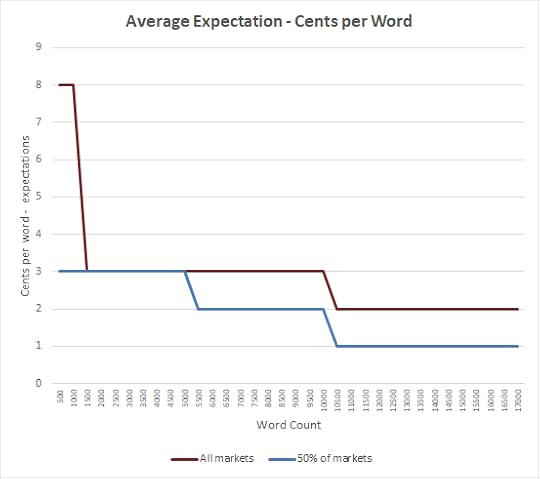
What the data are saying is that, if I could submit any story to any market that accepts that word count, then if I keep it below 1500 words, I should pick up eight cents per word (at an average acceptance rate of 4.36%). A more traditional short story length should garner me three cents per word, two when the word count hits five figures. Even the more realistic analysis reckons I should bank on three cents a word for anything up to 5000 words, dropping to a single penny at double that length.
And when you factor in that you can write a greater number of shorter stories - which takes longer?: ten thousand-word tales or one ten-thousand-word monster? that I’m even wondering suggests they’re about equal - the outcome is clear. Writing novellas is the literary equivalent of being a wheeltapper or coal miner: maybe the world needs a few still, but not that many. Note to self: cease and desist.
Can’t remember where, but some submission guidelines recently said something along the lines of ‘professionals rarely write anything less than 6000 words’. Why? Unless you're writing novels, and that WotF candidate has kept me away from my Sisyphean task since March, that's where the greatest chances of success are. The sweet spot is definitely below 5000, perhaps more in the region of 1500.
Forty-two is, however, definitely too short.
#
Click on the images or search for these on Amazon. You're here, so surely you know how to do that?

2084 - The Meschera Bandwidth
2084. The world remains at war.
In the Eurasian desert, twenty-year old Adnan emerges from a coma with memories of a strictly ordered city of steel and glass, and a woman he loved.
The city is the Dome, and the woman... is Adnan's secret to keep.
Adnan learns what the Dome is, and what his role really was within it. He learns why everybody fears the Sickness more than the troopers. And he learns why he is the only one who can stop the war.
Persuaded to re-enter the Dome to implant a virus that will bring the war machine to its knees, the resistance think that Adnan is returning to free the many - but really he wants to free the one.
24 0s & a 2
Twenty-four slipstream stories. Frequently absurd, often minimifidian, occasionally heroic.
June 1, 2021
May the Force be with you
Goodbye May. May's been good to me.
Not only did I reach my sales target for the year, but doubled it. Four sales in a month. Not sure I've done that before. Not sure I ever will.
So, in addition to 'The Pizza Bug' going to Cryosieum Press and Frost Zone's Handmade Horror,
Martian Magazine will be running 'General Katutian Surveys her Triumph' (something of a cheat, I'll admit - not only is this a drabble, it was originally sold to Martian in 2018, accepted, returned when the magazine went into hibernation, and has now been re-accepted. But I'm including it. See if I care.)Urhi Publishing have taken 'Roadkill' for their Needle Drops... anthology series. There's talk of producing theme music for some of the stories. I'm intrigued. And...'The Smartest Guy in the Room' will be in Mystery Weekly Magazine's Die Laughing anthology.Two horror stories, plus one criminally funny one (allegedly), and the only sci-fi is a hundred words long. So should I still think of myself as a sci-fi writer? Why not get your hands on these and judge for yourself:#
Click on the images or search for these on Amazon. You're here, so surely you know how to do that?

2084 - The Meschera Bandwidth
2084. The world remains at war.
In the Eurasian desert, twenty-year old Adnan emerges from a coma with memories of a strictly ordered city of steel and glass, and a woman he loved.
The city is the Dome, and the woman... is Adnan's secret to keep.
Adnan learns what the Dome is, and what his role really was within it. He learns why everybody fears the Sickness more than the troopers. And he learns why he is the only one who can stop the war.
Persuaded to re-enter the Dome to implant a virus that will bring the war machine to its knees, the resistance think that Adnan is returning to free the many - but really he wants to free the one.
24 0s & a 2
Twenty-four slipstream stories. Frequently absurd, often minimifidian, occasionally heroic.

